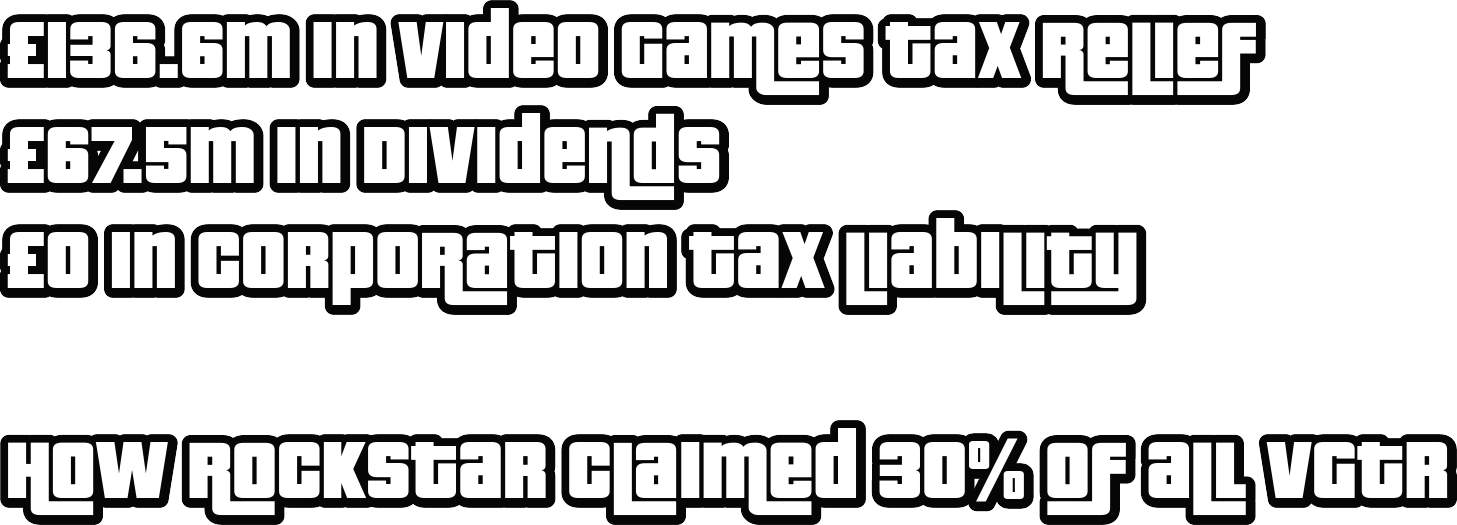
by Alex Dunnagan | Mar 14, 2023
R&D reliefs predicted to cost over £9bn by 2026-27 – by far the largest corporation tax relief Fraud and error in schemes total over £1.1bn in last three years R&D ‘claims farms’ continue to hard sell opportunities to claim refunds on expenditure that often...

by Alex Dunnagan | Jan 19, 2022
Rockstar Games UK Limited (previously Rockstar North) has finally published it’s 2020 accounts, more than one year late. In fact, the publication of Rockstar’s accounts are so late that the company’s 2021 accounts are already overdue. The recently filed 2020...

by Alex Dunnagan | May 9, 2020
Following controversy over the prospect of taxpayer funds being made available to support companies with a history of tax avoidance, there have been calls in the UK and around the world to exclude companies based in tax havens from accessing government support. Whilst...




